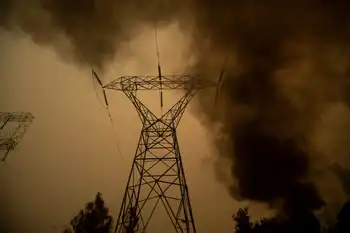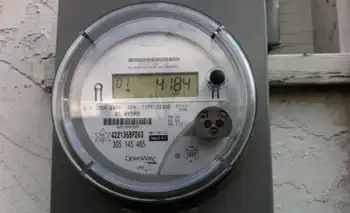The wacky world of green power
By Globe and Mail
NFPA 70e Training - Arc Flash
Our customized live online or in‑person group training can be delivered to your staff at your location.

- Live Online
- 6 hours Instructor-led
- Group Training Available
Thats because the government is going to pay him to put solar panels on his roof.
Its a thrill to be able to power my own lights while, at the same time, contributing to my citys electrical needs, he enthuses. Im glad solar power is getting out of the fringe and into the mainstream.
Should the rest of us be enthused? Maybe not.
In solar terms, Toronto is not exactly Southern California. Even there, nobody has figured out how to make solar power cheap. The government will pay Mr. Creeggan and other solar producers around 80 cents a kilowatt hour for the power they sell back to the grid. Thats about 15 times more than the current spot price that consumers now pay for power. The difference will eventually show up on their electricity bills.
Welcome to the wacky world of green power, where misguided governments have sparked a massive corporate feeding frenzy at taxpayers expense to achieve little or nothing of any social benefit.
Just recently, Ontario Premier Dalton McGuinty announced $8billion more in green investments, on top of the $7billion he announced a short while ago. Hes determined to outspend B.C. Premier Gordon Campbell, who also wants to be the king of green. The heart of their strategy is to pay massive subsidies to wind, solar and other renewable energy producers many of them large multinational corporations for the next 20 years.
Some people think this is a terrible idea. One of them is George Monbiot, the environmental firebrand in Britain, which has just introduced its own subsidy scheme.
The feedin tariffs [the rates paid to power generators such as Mr. Creeggan] about to be introduced here are extortionate, useless and deeply regressive, he fumed. The technologies the scheme will reward are comically inefficient.
Michael Trebilcock, a professor of law and economics at the University of Toronto, figures that the cost of renewables will average out at two to three times the cost of conventional power. Large wind producers, for example, will get 13.5 cents a kWh and small producers will get more. These costs will be fed through to industrial, commercial and residential consumers through additional charges on their electricity bills. There will be additional costs to extend the transmission grid.
And that means consumers are about to get a nasty shock. Ontarios Energy Minister said soothingly that the green scheme will add only a few dollars a year to peoples hydro bills. But energy costs were already set to spike by 25 per cent, and energy experts say households will soon be paying several hundred dollars more a year. The government is sitting on a political time bomb, says Peter Murphy, a Toronto energy lawyer.
Greenenergy advocates say the extra cost is worth it. Renewable energy will reduce our use of fossil fuels, cut down on greenhousegas emissions, and bolster the economy by kicking off a new era of green jobs.
Dont bet your solar panel on it.
Renewables simply cant produce the large volumes of reliable energy that our economy needs.
These energy sources are so intermittent and unreliable that you have to have backup power at all times, says Prof. Trebilcock. For every wind farm we build, well have to have a coal or gasfired power station waiting in the wings to take over when its 20 below. I think well get next to nothing on carbon dioxide abatement, he says.
Mr. Monbiot agrees. Germany, he says, has spent €1.2billion on solar roofs. Their total contribution to the countrys electricity supply was 0.4 per cent. Their total contribution to carbon savings is zero.
But what about green jobs? The McGuinty government confidently predicts that its green scheme will create 50,000 of them.
Dont believe it.
Some will be temporary construction jobs. Some other jobs will disappear because higher electricity costs will make Ontario less competitive. And many of the new jobs will be extremely costly to create.
In Denmark, the windpower darling of the world, subsidies per net job created have amounted to $90,000 to $149,000 a year, according to one independent study. In Germany, job subsidies have cost as much as $249,000 a year.
So who are the winners? The companies that harvest the subsidies. Theyre flocking to Ontario like fruit flies to a bowl of overripe peaches.
The government is trying to create a feelgood story by showcasing the little guys such as schools that want to install solar roofs, and nativerun wind companies with names such as Mother Earth despite the fact that little guys are the most inefficient operators of all. But its the big guys who are the biggest winners multinational corporations such as the Korean giant Samsung, with which Mr. McGuinty struck a $7billion deal, and Brookfield Renewable Power, which plans to generate more power than all the little guys put together.
The world is littered with cautionary tales about subsidized renewables and overblown promises. Spain went wild on solar, and set off a speculative boom. Inefficient, poorly designed plants popped up everywhere. The lavish subsidies inflated costs. When Spain plunged into recession, the subsidies were ratcheted back, and the industry collapsed.
Wind economics are shaky, too. In Britain, too many developments are underperforming, says Michael Jefferson, an expert on energy sustainability and economics. Wind developers, he says, have grossly exaggerated wind potential. The subsidies make it viable for developers to put turbines on sites they would not touch if the money was not available. As The Times of London notes, even environmentalists admit that some of Britains treasured landscapes may have been blighted for only small gains in green energy.
None of this has deterred Mr. McGuinty, who campaigned on the promise of shutting down Ontarios coalfired generating plants. Many in his own party now wonder how wise this was. His Green Energy Plan was rammed through by tough guy George Smitherman, who decamped to run for mayor of Toronto long before any chickens come home to roost.
Does this mean theres nothing we can do to cut down on fossil fuel emissions? Not at all.
Ontario has an abundant supply of clean energy that hasnt yet been tapped hydro.
Theres enough northern Canadian hydro power to satisfy Ontarios needs for decades, says Prof. Trebilcock. Ontario could impose a carbon tax, and invest the money in research to find ways of making green power less expensive. Theres also conservation more retrofitting and smart metering.
But those are boring. Wind turbines and solar panels offer better photo ops.
The solar panel is the ideal modern status symbol, which signifies both wealth and superiority, even if its perfectly useless, writes Mr. Monbiot. Seldom has there been a bigger public ripoff.











